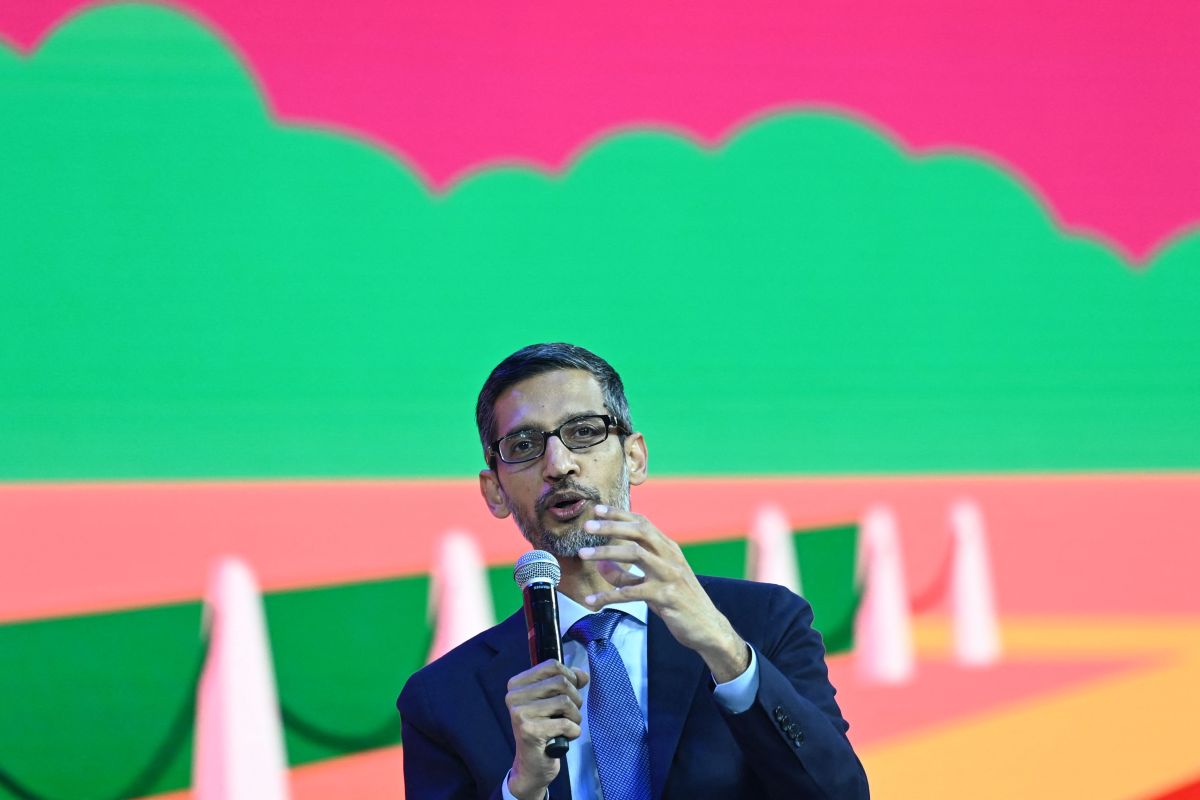Google is ramping up its artificial intelligence efforts in India to integrate AI across its products for Indians — a move that escalates the growing rivalry among U.S. tech firms in a market where competitors are lagging behind. At its 10th Google for India event on Thursday, the company said it was deploying its AI […]
© 2024 TechCrunch. All rights reserved. For personal use only.
Google is ramping up its artificial intelligence efforts in India to integrate AI across its products for Indians — a move that escalates the growing rivalry among U.S. tech firms in a market where competitors are lagging behind.
At its 10th Google for India event on Thursday, the company said it was deploying its AI model, Gemini, to enhance search, visual recognition, and language processing — key features for the world’s most populous nation, where support for voice commands and multiple languages are vital.
Over 40% of Gemini’s Indian language users rely on voice interactions, and Google seems keen to capitalize on the trend. The company is launching Gemini Live, an AI assistant featuring natural-esque and free-flowing voice conversations, in Hindi, with support for eight more Indian languages (Bengali, Gujarati, Kannada, Malayalam, Marathi, Telugu, Tamil and Urdu) to follow.
The search giant said it will expand its generative AI tool for search, AI Overviews, to support more Indian languages (Bengali, Marathi, Telugu, and Tamil) in the coming weeks. (It’s worth noting that the earlier review of AI Overviews in Hindi has been not-so-flattering.)
Google is also ramping up its work in visual search. Google Lens is more popular in India than anywhere else, so the company is experimenting with video-based searches, allowing users to ask complex questions about moving objects.
Even as India appears to be lagging in the generative AI race, the country still stands as the largest open market for tech giants globally. Google, which entered India 20 years ago, has amassed 700 million to 800 million users there, a vast base that could accelerate its AI adoption efforts.
The company’s AI push in India comes as U.S. tech giants pour billions into capturing users for their AI products. While OpenAI’s ChatGPT is available and is often used in India, it lacks significant localization for the world’s second-largest internet market.
Google Maps is also getting new India-focused AI features, like AI-generated summaries of places and the ability to search for specific experiences, not just locations. The company said it’s analyzing billions of reviews and images to turn Maps into a discovery platform, potentially reshaping how people explore local businesses and attractions.
The company is also introducing new AI-powered tools for Indian merchants, aiming to make it easier for them to build their digital presence. It said it is offering features in its Merchant Center, such as AI-generated video animations from static product photos, to help businesses create more engaging online profiles.
Google is also launching an automated system for converting photos of restaurants’ menus into formatted online listings. “By linking their social accounts through their Google Business Profile, they can also showcase deals from their social media posts, alongside deals from popular aggregators like Zomato, Swiggy, EazyDiner and MagicPin,” the company said.
It also said merchants will be able to add chat options that use SMS or WhatsApp directly to their search listings.
Google on Thursday also proposed a set of frameworks (PDF), outlining suggestions that it said can help India make the best out of the AI opportunity. The tech giant estimates AI can help India unlock about $4 trillion in economy value by 2030. The proposal calls for investments in compute capacity and open datasets, alongside modernizing skills programs. It also advocates for inclusive AI access and increased adoption by government and small businesses.
“We stand at a pivotal moment in the development of artificial intelligence (AI) in India. India’s outstanding tech talent, growing economy and vibrant start-up ecosystem mean that the country is well placed to fulfil its potential for AI global leadership,” the company wrote in the overview document.

Leave a Reply